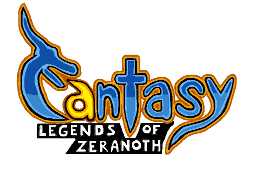Not so long ago, I've noticed that grouping games into genres limits them to specific audiences. Designers added mini-games, but their games where still limited by their core mechanics.
In a FPS you shoot, in a racing game you're stuck in the car and in a platformer you can't talk to enemies. Adventure games limit experimentation, RTS games punish poor reflexes and in a TBS characters wait to be hit.
On the other extreme, pen-and-paper RPG sessions are seem to be limited only by our imagination. Players simply choose a setting and go on an adventure.
I personally believe that games are actually an invention of the creator of the universe. As a social being, He left his fingertips allover the natural world. Look at animals for an example. They play for fun, education and socializing with other creatures of their kind.
As such, mankind, said to be created in His image, should respect the social aspect of games, not isolate people. A player shouldn't stop talking, just to maintain his Actions Per Minute. Instead having fun with their friends, people grow into socially-crippled individuals with "winning" against an AI or "being the best" (as if that mattered) as their sole motivation to play and feel respected.
But there really isn't much connection between the players. Game lasts several seconds, you win, move on. Dull and unsatisfying. The opponent isn't even able to express his honor or defeat.
Even in chess the players could see each other, express their emotions, chat with one another and play. They can pause anytime, they aren't pressured by the game's pace, they can discuss several topics and strategies during the game and even undo their last move (of course by mutual consent). Being such a simple game, chess does a pretty good job at socializing with friends. Sometimes it seems as if a game of hide-and-seek has a bigger social aspect to it than most modern video games. We simply cannot ignore this vital knowledge as game designers.
With these principles in mind, I began working on the "Uniform Engine", combining strategy with action. It's turn-based, so it can be played at your own pace. Players use the planning phase to prepare commands, which then are all preformed at once during the action phase, so there goes the boredom of waiting for your turn. It also adds strategy, because you must predict the other player's action as they happen, not simply respond to their move.
I will present more details later should I have more time to spare.

No comments:
Post a Comment